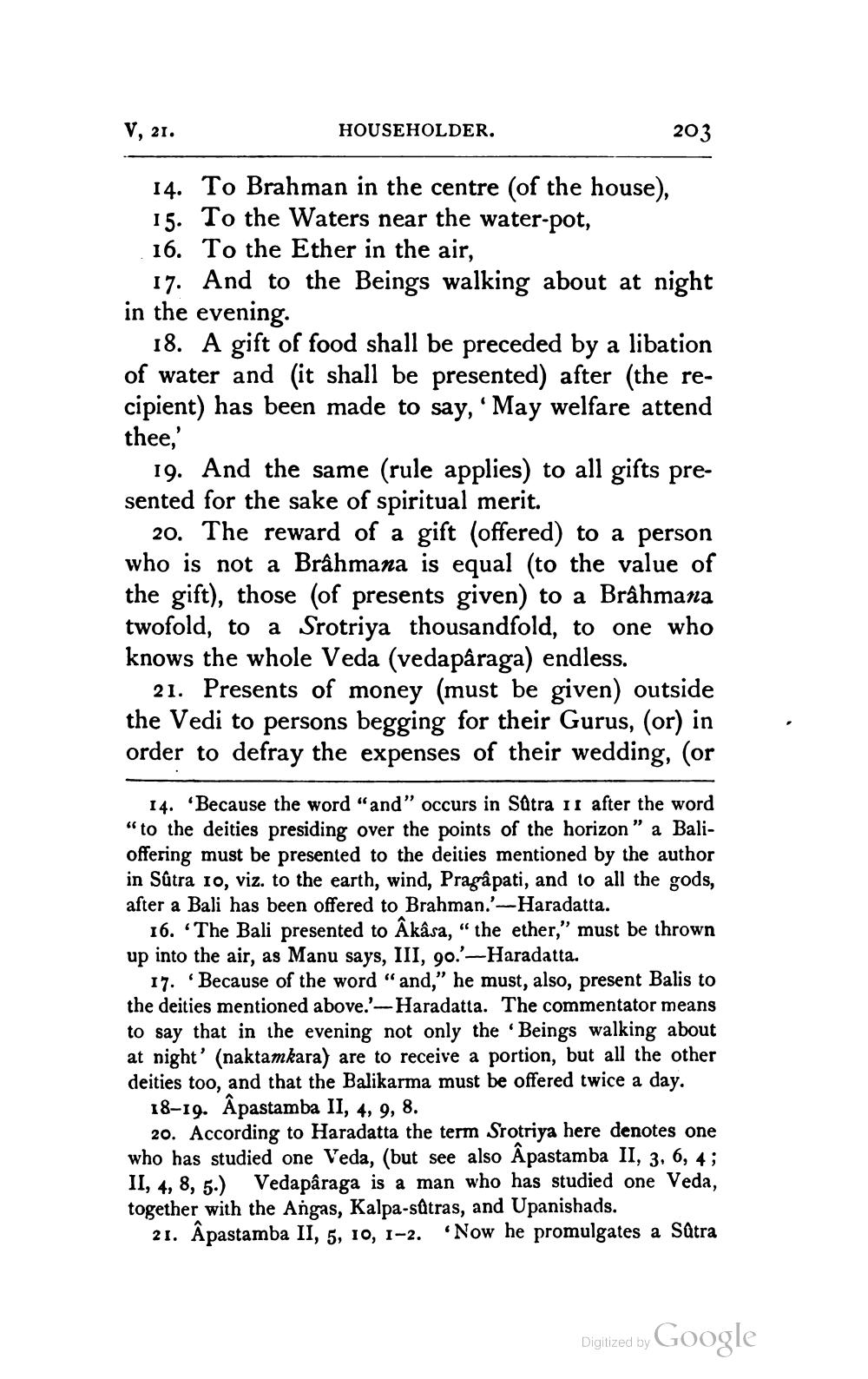________________
V, 21.
HOUSEHOLDER.
203
14. To Brahman in the centre of the house), 15. To the Waters near the water-pot, 16. To the Ether in the air,
17. And to the Beings walking about at night in the evening.
18. A gift of food shall be preceded by a libation of water and it shall be presented) after (the recipient) has been made to say, “May welfare attend thee,'
19. And the same (rule applies) to all gifts presented for the sake of spiritual merit.
20. The reward of a gift (offered) to a person who is not a Brâhmana is equal (to the value of the gift), those of presents given) to a Brâhmana twofold, to a Srotriya thousandfold, to one who knows the whole Veda (vedapäraga) endless.
21. Presents of money (must be given) outside the Vedi to persons begging for their Gurus, (or) in order to defray the expenses of their wedding, (or
14. 'Because the word "and" occurs in Sätra 11 after the word "to the deities presiding over the points of the horizon" a Balioffering must be presented to the deities mentioned by the author in Sutra 10, viz. to the earth, wind, Pragâ pati, and to all the gods, after a Bali has been offered to Brahman.'-Haradatta.
16. The Bali presented to Äkâsa, “the ether," must be thrown up into the air, as Manu says, III, 90.'-Haradatta.
17. Because of the word "and," he must, also, present Balis to the deities mentioned above.'-- Haradatta. The commentator means to say that in the evening not only the Beings walking about at night' (naktamkara) are to receive a portion, but all the other deities too, and that the Balikarma must be offered twice a day.
18-19. Âpastamba II, 4, 9, 8.
20. According to Haradatta the term Srotriya here denotes one who has studied one Veda, (but see also Āpastamba II, 3, 6, 4; II, 4, 8, 5.) Veda paraga is a man who has studied one Veda, together with the Angas, Kalpa-sâtras, and Upanishads.
21. Apastamba II, 5, 10, 1-2. Now he promulgates a Sætra
Digitized by Google




